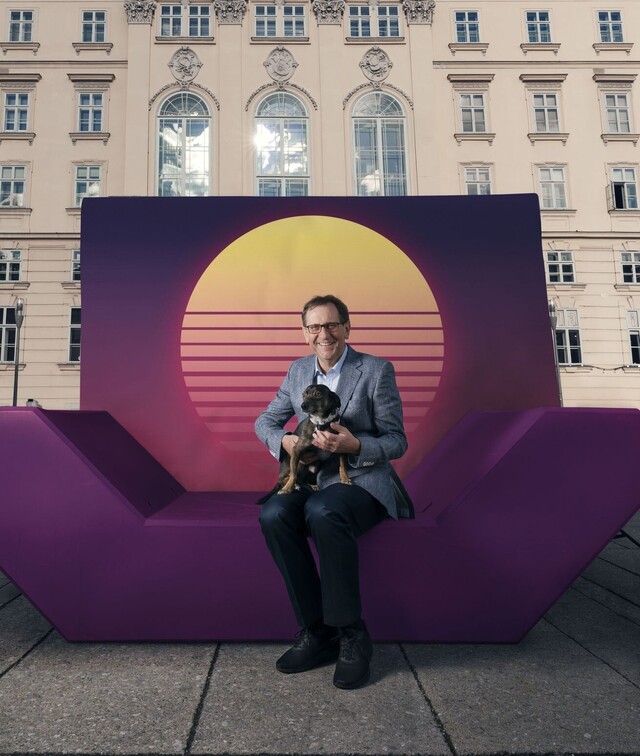
Five questions for MQ Director Christian Strasser
What’s your favorite time of year at the MQ? Is it true that what’s now your office was home to the emperor’s chief stablemaster in the 18th and 19th century? What the best way to spend a day at the MQ? What distinguishes the MQ from other culture complexes around the world? Where do you see the MQ’s future?
Read MQ director Christian Strasser's answers!
What’s your favorite time of year at the MQ?
At the moment, of course, it’s spring. As soon as our furniture is set up in the courtyards the whole MQ comes to life. This year, before we’d even finished unpacking the furniture the first sun worshippers were lying on it and a few kids were happily jumping around on it. And so life blossoms in the MQ courtyards again. You can hear people from dawn until late at night
Is it true that what’s now your office was home to the emperor’s chief stablemaster in the 18th and 19th century?
Yes, that’s true. The MQ was built for horses in the 18th century and was one of the most splendid royal stables in Europe with up to 600 horses. Of course, it also had to house the staff. And by the way we can still enjoy the baroque architecture today. It can get very hot in Vienna in summer. But there’s always a cool breeze in the MQ courtyards, which makes it so pleasant to visit in the summer. The architects constructed the entrances and courtyards in such a way that the site was well ventilated, dispersing the strong smell of so many horses.
What the best way to spend a day at the MQ?
One day? The MQ offers enough to do for a whole year. But joking aside, I’d start the day with breakfast in one of our excellent restaurants or cafes. If the weather was good I’d eat outside. Afterwards a stroll through the museums in search for inspiration. Then lunch in one of the lively courtyards and relax for a while on the courtyard furniture. Once refreshed, a trip to Q21, MQ’s creative zone, either with a guided tour or just to look around the exhibition spaces and frei_raum. If you have children, there’s a range of programs for them. Before going to another museum, I suggest you seek out the MQ’s hidden nooks and corners. There’s certainly no shortage of them. When evening falls there are numerous events, either concerts in the courtyards or performances and cultural programs in the institutions. I’d recommend meeting up with friends and enjoying the traffic-free space, forgetting your everyday cares and letting the place inspire new ideas in you.
What distinguishes the MQ from other culture complexes around the world?
For people in Vienna it’s an open-air living room. What’s special about it is that you can always feel relaxed here and are virtually never alone. In many culture complexes around the world everything shuts at 6pm and you’re on your own. In the MQ you can feel the life, and you feel it in a very pleasant way. You can’t plan something like this; it grows organically. I think it’s to do with the fact that the MQ has, right from the start, invited absolutely everyone. Openness is our most important message.
Where do you see the MQ’s future?
I always say: the MQ is the culture complex of the future. Why? Because people come here from all over the world and intuitively feel at home. You can be relaxing on your own on the courtyard furniture and still not feel lonely. If you want to you can engage on a deep level with contemporary art but you’re not pressured into anything. You hear many voices and languages here. Many people work here and many spend their free time here. The future means that we’re going to focus more and more on bringing people together and on shared, public space.
